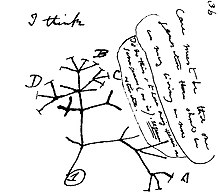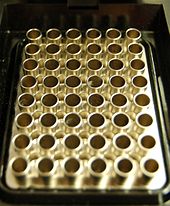User:HaileSelassieLive/bio

A biológia története az élővilág tanulmányozásának történetét követi végig az ókortól napjainkig. Bár a biológi, mint önálló tudományág csak a 19. században alakult ki, a biológiai tudományok a korábbi orvostudományi és természetrajzi hagyományokból alakultak ki, melyek egészen az ókori görög Galenusig és Arisztotelészig vezethetőek vissza. A reneszánsz korában és a korai újorban a biológiai gondolkodásmódot forradalmasította az újonnan felélénkülő érdeklődés az empirizmus iránt és számos új szervezet felfedezése. A mozgalom élén járt Vesalius és William Harvey, akik élettani kutatásaikban kísérleti módszereket alkalmazták és gondos megfigyeléseket tettek; valamint Carl Linnaeus és Buffon természettudósok, akik megkezdték az élő és fosszilis szervezetek tudományos osztályozását és az organizmusok fejlődésének és viselkedésének tanulmányozását. A mikroszkópia felfedezése a mikroorganizmusok korábban ismeretlen világa felé nyitott kaput és lefektette a sejtelmélet alapjait. A természeti teológia növekvő fontossága -- részben a mechanikai filozófiára válaszként --elősegítette a természetrajz fejlődését (bár segítette a teológiai érvelés berögzülését is.
A 18-19. század folyamán a biológiai tudományok (növény és állattan) egyre elismertebb tudományterületté váltak. Lavoisier és más természettudósok megindították azt a folyamatot, melynek során az élő és élettelen világ egyre közelebb került egymáshoz a közös fizikai és kémiai törvények miatt. Explorer-naturalists such as Alexander von Humboldt és más kutató természettudósok kutatni kezdték a szervezetek és környezetük közötti kölcsönhatásokat és azt, hogy ezek hogyan függenek a fölrajzi adottságoktól – ezzel lefektették a biogeográfia (természetföldrajz), ökológia és etológia tudományának alapjait. A természetkutatók már egyre kevésbé fogadták el az eszencializmust és fontosabbnak találták a kihalás és a fajok mutabilitását. A sejtelmélet új perspektívába helyezte az élet alapjait. Ezek a fejlődések, valamint az embriológiai és paleontológiai ismeretek bővülése vezetett el ahhoz, hogy Charles Darwin felállította az evolúció és a természetes kiválasztódás elméletét. A 19. század végére a spontán képződés eszméje elbukott és felváltotta a betegségek csíraelmélete, bár a biológiai öröklődés mikéntje egyelőre ismeretlen maradt.
A 20. század elején Gregor Mendel életművének ismertté válásával a genetika gyors fejlődésnek indult -- Thomas Hunt Morgannek és tanítványainak köszönhetően -- és az 1930-as évekre a populációgenetika és a természetes kiválasztódás kombinációjával kialakult az új-Darwinizmus eszméje. Egyre újabb tudományágak indultak fejlődésnek, különösen miután James D. Watson és Francis Crick megfejtették a DNS szerkezetét. A közpomti dogma (Central Dogma) felállítása és a genetikai kód feltörése után a biológiai tudomány kettévált a szervezeti szintű biológia – az a terület, amely teljes élő szervezetekkel és ezek csoportjaiaval foglalkozik – és a sejt- és molekuláris biológia területeire. A 20. század végére a genomika és proteomika előretörésével a két nagy terület újra közeledni kezdett egymáshoz, mivel a szervezet-biológusok molekuláris technikákat kezdtek használni; a molekuláris és sejtbiológusok pedig vizsgálni kezdték a gének és a környezet kölcsönhatásait valamint a szervezetek természeti populációinak genetikáját.
A biológia szó etimológiája[edit]
Ókori és középkori ismeretek[edit]
A korai kultúrák biológiai ismeretei[edit]
Ókori görög biológiai hagyomány[edit]
Középkori tudás[edit]
Reneszánsz és kora újkori fejlődés[edit]
17-18. század[edit]
19. század: a biológiai tudományok kialakulása[edit]
Natural history and natural philosophy (természetfilozófia[edit]
Geológia és paleontológia[edit]
Az evolúció és a biogeográfia[edit]

Élettan[edit]
Sejtelmélet, embriológia és csíraelmélet[edit]
Rise of organic chemistry and experimental physiology[edit]
Biológiai tudoményok a 20. században[edit]
Ökológiai tudományok és környezetvédelem[edit]
Klasszikus és modern genetika, evolúciós elmélet[edit]
Biokémia, mikrobiológia és molekuláris biológia[edit]
A molekuláris biológia eredete[edit]
A molekuláris biológia elterjedése[edit]
Biotechnológia, génmanipuláció és genomika[edit]
Molekuláris rendszertan és genomika[edit]

Jegyzetek[edit]
Irodalom[edit]
- Allen, Garland E. Thomas Hunt Morgan: The Man and His Science. Princeton University Press: Princeton, 1978. ISBN 0-691-08200-6
- Allen, Garland E. Life Science in the Twentieth Century. Cambridge University Press, 1975.
- Annas, Julia Classical Greek Philosophy. In Boardman, John; Griffin, Jasper; Murray, Oswyn (ed.) The Oxford History of the Classical World. Oxford University Press: New York, 1986. ISBN 0-19-872112-9
- Barnes, Jonathan Hellenistic Philosophy and Science. In Boardman, John; Griffin, Jasper; Murray, Oswyn (ed.) The Oxford History of the Classical World. Oxford University Press: New York, 1986. ISBN 0-19-872112-9
- Bowler, Peter J. The Earth Encompassed: A History of the Environmental Sciences. W. W. Norton & Company: New York, 1992. ISBN 0-393-32080-4
- Bowler, Peter J. The Eclipse of Darwinism: Anti-Darwinian Evolution Theories in the Decades around 1900. The Johns Hopkins University Press: Baltimore, 1983. ISBN 0-8018-2932-1
- Browne, Janet. The Secular Ark: Studies in the History of Biogeography. Yale University Press: New Have, 1983. ISBN 0300024606
- Bud, Robert. The Uses of Life: A History of Biotechnology. Cambridge University Press: London, 1993. ISBN 0521382408
- Caldwell, John. "Drug metabolism and pharmacogenetics: the British contribution to fields of international significance." British Journal of Pharmacology, Vol. 147, Issue S1 (January 2006), pp S89–S99.
- Coleman, William Biology in the Nineteenth Century: Problems of Form, Function, and Transformation. Cambridge University Press: New York, 1977. ISBN 0-521-29293-X
- Creager, Angela N. H. The Life of a Virus: Tobacco Mosaic Virus as an Experimental Model, 1930–1965. University of Chicago Press: Chicago, 2002. ISBN 0-226-12025-2
- Creager, Angela N. H. "Building Biology across the Atlantic," essay review in Journal of the History of Biology, Vol. 36, No. 3 (September 2003), pp. 579–589.
- de Chadarevian, Soraya. Designs for Life: Molecular Biology after World War II. Cambridge University Press: Cambridge, 2002. ISBN 0521570786
- Dietrich, Michael R. "Paradox and Persuasion: Negotiating the Place of Molecular Evolution within Evolutionary Biology," in Journal of the History of Biology, Vol. 31 (1998), pp. 85–111.
- Davies, Kevin. Cracking the Genome: Inside the Race to Unlock Human DNA. The Free Press: New York, 2001. ISBN 0-7432-0479-4
- Fruton, Joseph S. Proteins, Enzymes, Genes: The Interplay of Chemistry and Biology. Yale University Press: New Haven, 1999. ISBN 0-300-07608-8
- Gottweis, Herbert. Governing Molecules: The Discursive Politics of Genetic Engineering in Europe and the United States. MIT Press: Cambridge, MA, 1998. ISBN 0-262-07189-4
- Gould, Stephen Jay. The Structure of Evolutionary Theory. The Belknap Press of Harvard University Press: Cambridge, 2002. ISBN 0-674-00613-5
- Hagen, Joel B. An Entangled Bank: The Origins of Ecosystem Ecology. Rutgers University Press: New Brunswick, 1992. ISBN 0-8135-1824-5
- Hall, Stephen S. Invisible Frontiers: The Race to Synthesize a Human Gene. Atlantic Monthly Press: New York, 1987. ISBN 0-87113-147-1
- Holmes, Frederic Lawrence. Meselson, Stahl, and the Replication of DNA: A History of "The Most Beautiful Experiment in Biology". Yale University Press: New Haven, 2001. ISBN 0300085400
- Junker, Thomas. Geschichte der Biologie. C. H. Beck: München, 2004.
- Kay, Lily E. The Molecular Vision of Life: Caltech, The Rockefeller Foundation, and the Rise of the New Biology. Oxford University Press: New York, 1993. ISBN 0-19-511143-5
- Kohler, Robert E. Lords of the Fly: Drosophila Genetics and the Experimental Life. Chicago University Press: Chicago, 1994. ISBN 0-226-45063-5
- Kohler, Robert E. Landscapes and Labscapes: Exploring the Lab-Field Border in Biology. University of Chicago Press: Chicago, 2002. ISBN 0-226-45009-0
- Krimsky, Sheldon. Biotechnics and Society: The Rise of Industrial Genetics. Praeger Publishers: New York, 1991. ISBN 0-275-93860-3
- Larson, Edward J. Evolution: The Remarkable History of a Scientific Theory. The Modern Library: New York, 2004. ISBN 0-679-64288-9
- Lennox, James (2006-02-15). "Aristotle's Biology". Stanford Encyclopedia of Philosophy. Retrieved October 28, 2006.
{{cite web}}: External link in|work= - Lovejoy, Arthur O. The Great Chain of Being: A Study of the History of an Idea. Harvard University Press, 1936. Reprinted by Harper & Row, ISBN 0-674-36150-4, 2005 paperback: ISBN 0-674-36153-9.
- Magner, Lois N. A History of the Life Sciences, third edition. Marcel Dekker, Inc.: New York, 2002. ISBN 0-8247-0824-5
- Mason, Stephen F. A History of the Sciences. Collier Books: New York, 1956.
- Mayr, Ernst. The Growth of Biological Thought: Diversity, Evolution, and Inheritance. The Belknap Press of Harvard University Press: Cambridge, Massachusetts, 1982. ISBN 0-674-36445-7
- Mayr, Ernst and William B. Provine, eds. The Evolutionary Synthesis: Perspectives on the Unification of Biology. Harvard University Press: Cambridge, 1998. ISBN 0-674-27226-9
- Morange, Michel. A History of Molecular Biology, translated by Matthew Cobb. Harvard University Press: Cambridge, 1998. ISBN 0-674-39855-6
- Rabinbach, Anson. The Human Motor: Energy, Fatigue, and the Origins of Modernity. University of California Press, 1992. ISBN 0520078276
- Rabinow, Paul. Making PCR: A Story of Biotechnology. University of Chicago Press: Chicago, 1996. ISBN 0-226-70146-8
- Rudwick, Martin J.S. The Meaning of Fossils. The University of Chicago Press: Chicago, 1972. ISBN 0-226-73103-0
- Raby, Peter. Bright Paradise: Victorian Scientific Travellers. Princeton University Press: Princeton, 1997. ISBN 0-691-04843-6
- Rothman, Sheila M. and David J. Rothman. The Pursuit of Perfection: The Promise and Perils of Medical Enhancement. Vintage Books: New York, 2003. ISBN 0-679-75835-6
- Sapp, Jan. Genesis: The Evolution of Biology. Oxford University Press: New York, 2003. ISBN 0-19-515618-8
- Secord, James A. Victorian Sensation: The Extraordinary Publication, Reception, and Secret Authorship of Vestiges of the Natural History of Creation. University of Chicago Press: Chicago, 2000. ISBN 0-226-74410-8
- Sulston, John. The Common Thread: A Story of Science, Politics, Ethics and the Human Genome. National Academy Press, 2002. ISBN 0309084091
- Smocovitis, Vassiliki Betty. Unifying Biology: The Evolutionary Synthesis and Evolutionary Biology. Princeton University Press: Princeton, 1996. ISBN 0-691-03343-9
- Summers, William C. Félix d'Herelle and the Origins of Molecular Biology, Yale University Press: New Haven, 1999. ISBN 0-300-07127-2
- Sturtevant, A. H. A History of Genetics. Cold Spring Harbor Laboratory Press: Cold Spring Harbor, 2001. ISBN 0879696079
- Thackray, Arnold, ed. Private Science: Biotechnology and the Rise of the Molecular Sciences. University of Pennsylvania Press: Philadelphia, 1998. ISBN 0812234286
- Wilson, Edward O. Naturalist. Island Press, 1994.
- Zimmer, Carl. Evolution: the triumph of an idea. HarperCollins: New York, 2001. ISBN 0-06-113840-1
Külső hivatkozások[edit]
- International Society for History, Philosophy, and Social Studies of Biology - professional history of biology organization
- History of Biology - Historyworld article
- History of Biology at Bioexplorer.Net - a collection of history of biology links
- Biology - historically-oriented article on Citizendium
- Miall, L. C. (1911) History of biology. Watts & Co. London
Template:Featured article is only for Wikipedia:Featured articles.
